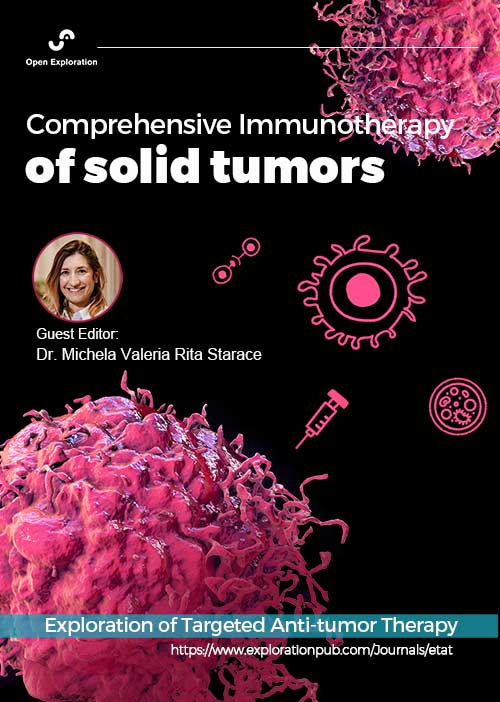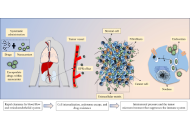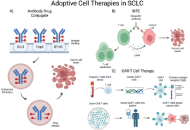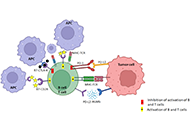-
 Special Issue Topic
Special Issue TopicComprehensive Immunotherapy of Solid Tumors
Submission Deadline: October 31, 2024Guest Editor
Dr. Michela Valeria Rita Starace E-Mail
Department of Medical and Surgical Sciences, Alma Mater Studiorum Università di Bologna, Bologna, Italy
Research Keywords: Immunotherapy, targeted therapy, cutaneous adverse events, adnexal adverse events, solid tumors, hair disorders, nail disorders
About the Special Issue
Cancer persists as one of the most challenging diseases to cure globally. Before the 21st century, primary approaches to cancer treatment included surgical removal, radiotherapy, and chemotherapy. Immunotherapy has significantly altered the treatment outlook for cancers like melanoma, non-small cell lung cancer, renal cell carcinoma, and others. This type of treatment has emphasized that treating tumors should not solely focus on cancer cells but should also consider the entirety of the tumor microenvironment. Indeed, while initially, the immune system can efficiently monitor and identify cancer cells, the immune-editing impact of cancer can lead its cells to transition into an immune escape state. The complexity of tumor immune evasion can be summarized into two main facets: firstly, tumor cells themselves induce immune evasion by lacking crucial molecules like MHC (major histocompatibility complex) or co-stimulatory molecules, reducing antigen immunogenicity, and suppressing antigen presentation genes. Additionally, changes in the body's immune function, including failure to detect early tumor-associated antigens, suppression of immune response by myeloid-derived suppressor cells (MDSC), regulatory T cells (Treg), and tumor-associated macrophages, as well as the impaired function of specialized antigen-presenting cells, play also a role in this process.
Immunotherapy encompasses various treatments for cancer, including immune checkpoint inhibitors, T-cell transfer therapy, monoclonal antibodies, treatment vaccines, and immune system modulators, all aimed at enhancing the body's immune response against cancer cells. These therapies target different aspects of the immune system to bolster its ability to recognize and destroy cancer cells.
This special issue aims to delve into the most recent advancements in immunotherapy for solid tumors, encompassing updates on novel treatment methodologies, adverse events, and the prognostic implications of such therapies.
Keywords: Immunotherapy, immune escape, adverse events, solid tumors, renal cell carcinoma, breast cancer, non-small cell lung cancer
Call for Papers
Published Articles
 Nanoimmunotherapy: the smart trooper for cancer therapyOpen AccessReviewImmunotherapy has gathered significant attention and is now a widely used cancer treatment that uses the body’s immune system to fight cancer. Despite initial successes, its broader clinical appli [...] Read more.Suphiya Parveen ... Fahima DilnawazPublished: April 10, 2025 Explor Target Antitumor Ther. 2025;6:1002308
Nanoimmunotherapy: the smart trooper for cancer therapyOpen AccessReviewImmunotherapy has gathered significant attention and is now a widely used cancer treatment that uses the body’s immune system to fight cancer. Despite initial successes, its broader clinical appli [...] Read more.Suphiya Parveen ... Fahima DilnawazPublished: April 10, 2025 Explor Target Antitumor Ther. 2025;6:1002308
DOI: https://doi.org/10.37349/etat.2025.1002308 Advances in adoptive cell therapies in small cell lung cancerOpen AccessReviewSmall cell lung cancer (SCLC) is an aggressive tumor characterized by early metastasis and resistance to treatment making it a prime target for therapeutic investigation. The current standard of car [...] Read more.Eljie Isaak Bragasin ... Robert HsuPublished: March 26, 2025 Explor Target Antitumor Ther. 2025;6:1002302
Advances in adoptive cell therapies in small cell lung cancerOpen AccessReviewSmall cell lung cancer (SCLC) is an aggressive tumor characterized by early metastasis and resistance to treatment making it a prime target for therapeutic investigation. The current standard of car [...] Read more.Eljie Isaak Bragasin ... Robert HsuPublished: March 26, 2025 Explor Target Antitumor Ther. 2025;6:1002302
DOI: https://doi.org/10.37349/etat.2025.1002302 Immunotherapy in cervical cancer: an innovative approach for better treatment outcomesOpen AccessReviewCervical cancer remains a significant global health challenge, ranking as the fourth most common cancer among women. Persistent infection with high-risk human papillomavirus (HPV) is the primary eti [...] Read more.Treshita Dey, Sushma AgrawalPublished: March 02, 2025 Explor Target Antitumor Ther. 2025;6:1002296
Immunotherapy in cervical cancer: an innovative approach for better treatment outcomesOpen AccessReviewCervical cancer remains a significant global health challenge, ranking as the fourth most common cancer among women. Persistent infection with high-risk human papillomavirus (HPV) is the primary eti [...] Read more.Treshita Dey, Sushma AgrawalPublished: March 02, 2025 Explor Target Antitumor Ther. 2025;6:1002296
DOI: https://doi.org/10.37349/etat.2025.1002296 -
-
Ongoing Special Issues
-
Completed Special Issues